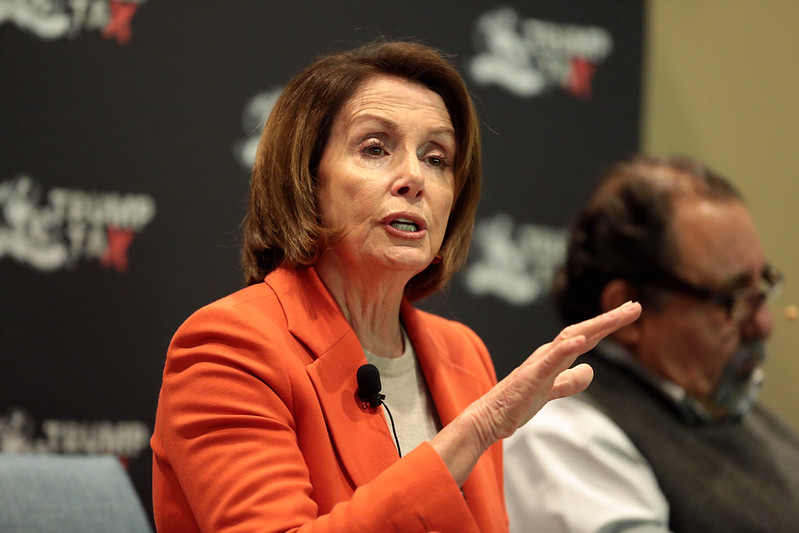The road to Trump’s impeachment inquiry
(Photo courtesy of Gabe Skidmore (CC BY-SA 2.0)) Democrat Nancy Pelosi, while at first was hesitant, decided to launch an impeachment inquiry against President Trump on Sept. 24.
October 2, 2019
House Speaker Nancy Pelosi (D-Calif.), announced the beginning of a formal impeachment inquiry against President Trump on Tuesday, Sept. 24, for violating the U.S. Constitution.
Speaker Pelosi, who originally was hesitant on impeachment, explained her concerns with President Trump’s July phone call with the Ukrainian President, Volodymyr Zelensky.
“This week, the President has admitted to asking the President of Ukraine to take actions which would benefit him politically,” Pelosi said. “The actions of the Trump presidency revealed the dishonorable fact of the President’s betrayal of his oath of office, betrayal of our national security and betrayal of the integrity of our elections.”
Before the impeachment inquiry, there was a whistleblower complaint on Aug. 12, but it wasn’t originally filed. Then, the Washington Post broke that the complaint had to do with a July 25 phone call between President Trump and the Ukrainian president. According to the transcript of the phone call, released by White House, Trump asked Zelensky to “look into” allegations of former Vice President Joe Biden stopping a prosecutor from investigating his son, Hunter, who worked with a Ukrainian company while Joe was Vice President. After the phone call’s transcript was released, the whistleblower’s complaint was released by the White House.
On Oct. 6, a second whistleblower came forward, who claimed to have “first-hand knowledge” of the phone call’s discussions. Days later, Hunter Biden’s lawyers announced that Hunter will resign from a Chinese-backed firm, amid investigations into his work.
Around the time of the original phone call, U.S. foreign aid for Ukraine was momentarily withheld, which rose suspicions from Democrats about Trump using the aid to get Ukraine to look into the Bidens. President Trump responded by saying he wants European countries to contribute more to foreign military aid, mainly for Ukraine’s conflict with Russia.
In the following days, according to NBC News, numerous subpoenas were issued by Democrats to White House officials and people close to President Trump.
On Oct. 15, Nancy Pelosi announced that there will not be an impeachment vote held “at this time” according to NBC News. The House Republicans said that a vote on the floor can increase their voice during the process.
AP American Government and Politics teacher Beth Vaknin said she thinks this inquiry will force current presidential candidates to take a stand, thus having impeachment becoming a prominent 2020 issue. Vaknin also said she believes it will affect how D.C. runs.
“The impeachment inquiry will slow things down in D.C. and divide the nation, but it may do a lot to reign in the executive branch which hasn’t been following the rules,” Vaknin said.


